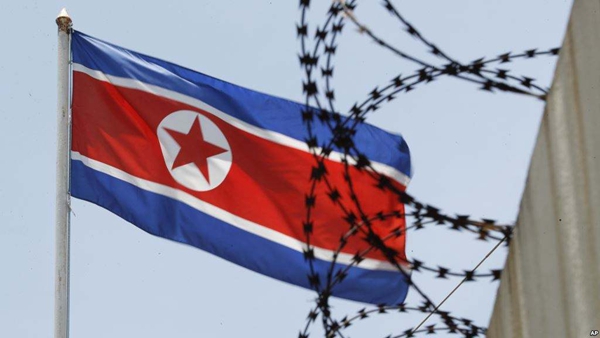Deterrence works both ways
- By Sumantra Maitra
 0 Comment(s)
0 Comment(s) Print
Print E-mail China.org.cn, September 7, 2017
E-mail China.org.cn, September 7, 2017

In the classic works on geopolitics, such as those by Schelling and subsequently Huth, deterrence is a concept that broadly falls into the category of preventing an armed attack against your State or against your allies, which is called extended deterrence.
The logic of deterrence is simple and yet often confusing. One doesn’t need to match the forces opposing you in order to deter an adversary. The logic is based on fear.
At this point, there are over a hundred thousand Russian troops based in areas bordering Europe, engaged in various military exercises. All it needs, however, is a squadron of American jets, or a brigade of British troops present in the Baltic region, to prevent a situation like Georgia or Crimea.
No leader of Russia is insane or irrational enough to invade a NATO country, when two nuclear powers have their men on the line.
The situation in Syria, North Korea or along the north Indian border, are all bound by the same logic of deterrence. Deterrence doesn’t care about unequal powers or asymmetry in capabilities. All that matters is an understanding of mutual assured destruction and the logic of escalation to uncomfortable heights. And most importantly deterrence works both ways.
In Syria, Assad realized he was individually incapable of defending his regime against an interventionist West. Luckily for him, he had a bargain chip which Gaddafi in Libya or Saddam Hussein in Iraq both lacked. He had a Russian naval base.
He didn’t need nuclear weapons, but was cunning enough to invite in Russian forces, thus creating extended deterrence. The moment Russian troops, or even a single Russian soldier landed in Syria, the game was over.
This is the same reason why the overall chance of a full-scale war between India and China, or India and Pakistan, and China and U.S. remains at an all-time low, regardless of repeated flashes or uncertainties.
Now, let’s consider North Korea. There was a recent, undoubtedly provocative missile test flight over Japan. This, seemingly irrational act again started what we thought was over.
North Korea fired several rockets into the sea on Saturday as it continued its military and nuclear expansion, and the South Koreans continue their joint military drills with the U.S. The U.S./ Pacific command also revised its assessment. None of these firings posed a threat to Guam, which was the target of recent Northern rhetoric.
So, is the North irrational? The answer is no. And the logic of deterrence is now working both ways. The reason the North backed off from the threat to blow up Guam last month, was the same reason it will never start a conflict on its own – the fear of asymmetric and regime-destroying retaliation.
The North’s missiles and warheads, are rudimentary; the tests cost money; and the stockpile of radioactive elements are finite. There’s no guarantee North Korea would be able to hit Guam, without its missile being intercepted.
But what then? A nuclear attack, even a failed one, will invite a nuclear retaliation, and overwhelming retaliation at that. Pyongyang’s biggest ally, China, last month stated that it would only intervene on the Korean peninsula if an attack came first from the American side. If it’s a retaliation, it is implied that China will sit the conflict out. Similarly, American Defense Secretary James Mattis stated Washington would “not initiate” a conflict.
The same logic of deterrence, however, works the other way. The reason North Korea is using these tests is because it needs to sit at the negotiating table. However, it wants to do so from a position of power. It is not getting that due to sanctions, so it wants to play the waiting game.
Time is on its side; military prowess will only increase. It’s called internal balancing against external threats.
Most importantly, Kim Jong-un has called the bluff that there will be negotiation if he ditches the nukes. Gaddafi did that, and ended up dead in a ditch. Ukraine did, and ended up being dissected by its giant neighbor. Saddam never managed to get WMDs, not that he didn’t try, and ended up deposed and hanged.
The point is, it doesn’t matter if you’re a good leader or bad one, a law-abiding country, or a rogue state, if you lose your deterrence, you stand at risk of being invaded. Nuclear weapon, even if it is only a solitary rudimentary bomb, carried on an airplane from the second world war era, is enough to flatten Seoul at least, and start a nuclear winter right on the border of China.
No one will risk it. The Americans know that, Kim knows that, the entire international community knows that. It is about time, we understand that, to step back from this brinkmanship and start negotiating to solve the Korean crisis.
Sumantra Maitra is a columnist with China.org.cn. For more information please visit:
http://m.formacion-profesional-a-distancia.com/opinion/SumantraMaitra.htm
Opinion articles reflect the views of their authors only, not necessarily those of China.org.cn.





